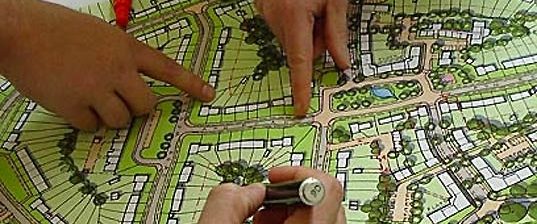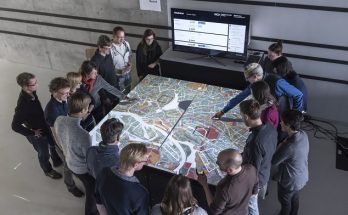Urban economics is a field of economics that focuses on the spatial organization of economic activity, the interactions between different sectors within cities, and the policies that can influence urban development. As cities continue to grow and evolve, understanding the economic principles that govern urban areas becomes increasingly crucial. This field combines elements from various disciplines, including geography, sociology, and public policy, to provide a comprehensive understanding of urban issues.

The Fundamentals of Urban Economics
At its core, urban economics examines how resources are allocated within cities and how these allocations affect the urban environment. It addresses questions such as why cities form, how they grow, and what factors contribute to their decline. Key concepts in urban economics include:
- Agglomeration Economies: This refers to the benefits that firms and individuals accrue by locating near one another. These benefits can arise from reduced transportation costs, increased opportunities for innovation through proximity, and a larger labor pool. Agglomeration economies explain why industries often cluster in specific areas and why cities can become hubs of economic activity.
- Land Use and Zoning: Urban economists study how land is utilized within cities and the impact of zoning laws on development. Zoning regulations can influence the density of development, the types of businesses that can operate in certain areas, and the availability of housing.
- Housing Markets: The dynamics of supply and demand in urban housing markets are critical to urban economics. Factors such as population growth, income levels, and government policies affect housing prices and availability. Urban economists analyze these factors to understand housing affordability and the potential for housing bubbles.
- Transportation and Infrastructure: Efficient transportation systems are vital for the functioning of cities. Urban economics examines the impact of transportation networks on commuting patterns, property values, and overall economic activity. Infrastructure investments, such as roads, public transit, and utilities, are also crucial for supporting urban growth.
- Urbanization and Migration: The movement of people from rural to urban areas, known as urbanization, is a significant focus of urban economics. Economists study the drivers of migration, such as employment opportunities and living standards, and the challenges it poses, including overcrowding and strain on public services.
Urban Challenges and Policy Implications
Urban areas face numerous challenges that require informed policy responses. Urban economists play a crucial role in identifying these challenges and proposing solutions. Some key issues include:
- Affordable Housing: As cities grow, the demand for housing often outstrips supply, leading to rising prices and affordability issues. Urban economists advocate for policies that can increase the supply of affordable housing, such as incentivizing development, easing zoning restrictions, and providing subsidies for low-income households.
- Economic Inequality: Economic disparities can be pronounced in urban areas, with significant differences in income and access to services between neighborhoods. Policies aimed at reducing inequality might include improving education and job training programs, investing in underserved communities, and ensuring equitable access to public services.
- Environmental Sustainability: Urban areas are major contributors to environmental degradation due to high levels of pollution and resource consumption. Urban economists examine ways to promote sustainable development, such as implementing green building standards, enhancing public transit to reduce reliance on cars, and encouraging the use of renewable energy.
- Urban Sprawl: The expansion of cities into surrounding rural areas, known as urban sprawl, can lead to inefficient land use and increased infrastructure costs. Policies to combat sprawl include promoting higher-density development, protecting green spaces, and improving the efficiency of existing infrastructure.
- Transportation and Mobility: Ensuring efficient and accessible transportation is vital for urban areas. Urban economists study the impact of various transportation policies, such as congestion pricing, investments in public transit, and the development of bike-friendly infrastructure, on urban mobility and economic activity.
The Future of Urban Economics
As cities continue to grow and evolve, the field of urban economics will play an increasingly important role in shaping their development. Advances in technology, such as smart cities and data analytics, offer new opportunities for understanding and addressing urban issues. Moreover, the ongoing challenges of climate change, economic inequality, and globalization require innovative economic approaches to create sustainable and livable urban environments.
Urban economics provides a framework for analyzing the complex interactions within cities and offers insights into the policies that can foster healthy, vibrant, and equitable urban areas. By integrating economic principles with an understanding of social and spatial dynamics, urban economics helps policymakers, planners, and communities navigate the challenges and opportunities of urbanization.




